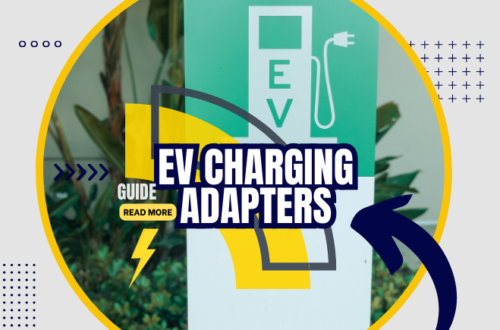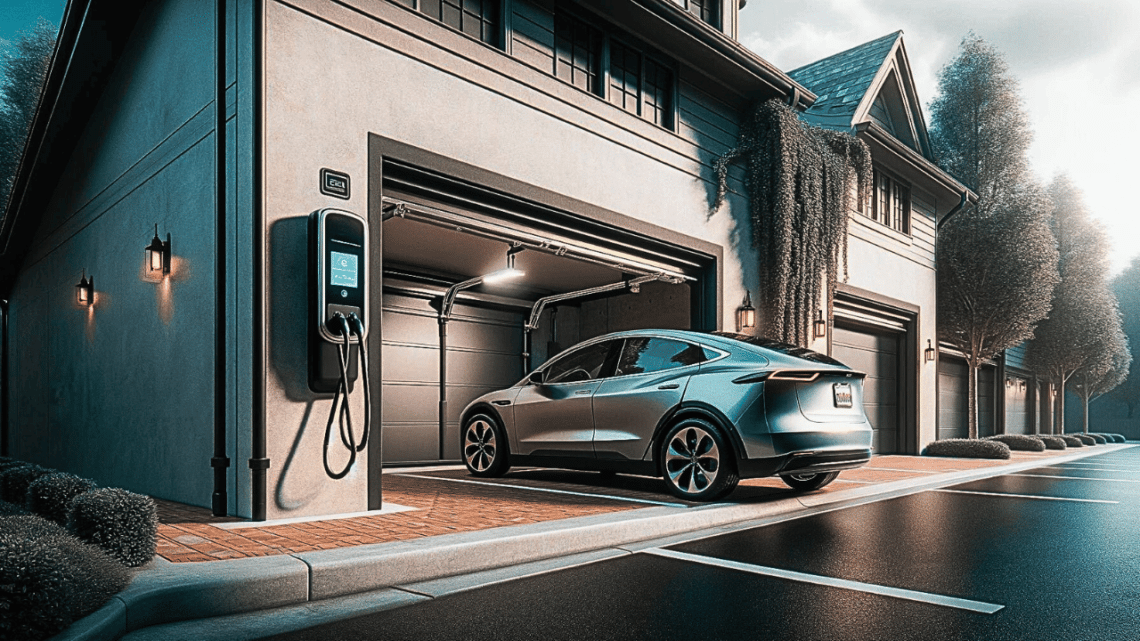
Level 2 EV Chargers (7 Best Options) In Market That Are Worth It
- Electric Cars
- Updated On - March 8, 2024
There are three types of EV chargers – level 1, level 2, and level 3. You can charge your EV fully with a level 2 charger in about 7-9 hours. Which is great. Basically, your electric vehicle can go from 0% to 100% charge overnight.
So two things are important to consider. The speed at which you can charge and consequently the range you can get in an hour at that speed.
If you need a fully charged vehicle to drive the next morning, you will need a Level 2 EV charger (240V). It can charge your vehicle at a rate of about 40 miles per hour.
In contrast, if you use a 110V charging point, which only delivers a trickle charge, it can take more than 72 hours to charge a Tesla Model 3. This is too time-consuming.
This article is a comparison of the top 7 Level 2 EV Chargers selected from dozens of manufacturers.
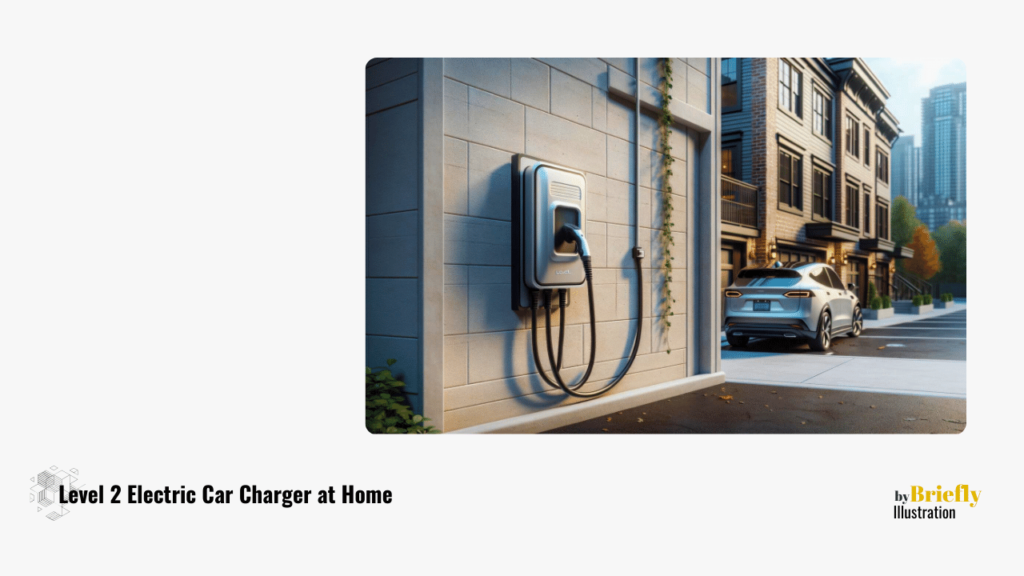
What we considered in our charger selection for electric vehicle:
-
- The price and affordability
- Best on the market
- Comparing options’ value
- Ease of installation
- Build quality
- Smart features
- Buying considerations
What are the Best Level 2 electric car chargers?
1. ChargePoint Home Flex: Best Overall ($550)

What we like: Great build quality and reliable charger
What we don’t: No power sharing ability
ChargePoint Home Flex is our best choice considering all EV owners. A level 2, fast, and flexible EV charger. The ChargePoint app is very intuitive and easy to use, and it has coverage all over North America and the world.
Experience with ChargePoint Home Flex and in general ChargePoint chargers is reliable, high-performance, and user-friendly. This makes it a top choice among many EV owners…Read in-depth review. We also compared the home flex charger with ShockFlo G1 electric car charger…Read in-depth comparison. In addition, we did a side by side comparison of two companies of EVGo and ChargePoint…Read in-depth comparison.
Key Features
- Charging speed: 9 times faster than a standard outlet (up to 37 miles per hour)
- Cable length: 23 feet
- Charging amperage range: up to 50 amps (Flexible setting 16A to 50A)
- WiFi-connectivity: Wi-Fi enabled, having features like scheduled charging, setting reminders, and integration of ChargePoint app with Alexa
- Compatibility: with all-electric vehicles including Tesla, it works with circuits rated 20A to 80A
- Safety: UL-listed for safety and Energy Star certified for efficiency
- Warranty: 3-year warranty and a 24/7 customer support
- Installation: It can be installed indoors or outdoors via hardwiring or by plugging into a NEMA 6-50 or NEMA 14-50 receptacle. Professional electricians must install it.
2. Tesla Wall Connector: Best For Tesla Owners ($450)

What we like: The echo system of Tesla and control over the app.
What we don’t like: It’s mainly great for Tesla owners
Our second pick on this list is the Tesla Wall Connector charger. If you’re a Tesla owner, this is one of the best options for Tesla owners.
The Tesla Wall Connector is known for its robust build quality, ensuring durability and longevity. Whether it’s installed indoors or outdoors, you can trust that this charger will withstand various weather conditions and provide reliable charging for your Tesla vehicle. We have compared the two models of Tesla charger (wall connector vs. mobile connector) next to each other…Read in-depth comparison.
Key Features
- Charging speed: Up to 44 miles of range per hour of charge
- Cable length: 24 feet
- Charging Amperage Range: Up to 48 amps
- Wi-Fi Connectivity: Receive over-the-air firmware updates, access remote diagnostics, and control charging schedules and settings through the Tesla app
- Universal compatibility: Tesla and non-Tesla EVs can use it. Includes an integrated J1772 adapter for charging non-Tesla EVs
- Warranty: Four-year residential warranty
- Auto-sensing: Automatically opens the charging port door on approach
3. JuiceBox 40 Amp ($550): Nice Cable
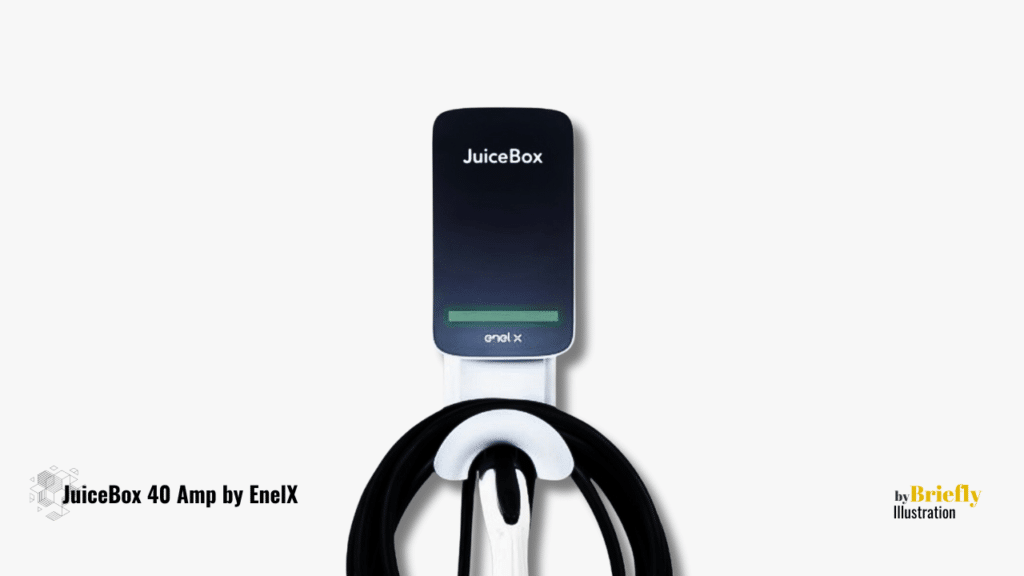
What we like: Very well built and designed with a high-quality cable.
What we don’t: The app sometimes has bugs and lacks frequent updates as per reviews.
JuiceBox 40 amp is primarily designed for use at home or in residential areas. With this level 2 EV charger you get speed, smart features, and decent value. The cable management built into its design makes it an organized electric vehicle charger.
The build quality is solid for both indoor and outdoor use.
You can set the charging level to a specific percentage rather than full which is a neat feature. Another huge benefit of the JuiceBox charger is the ability to do load sharing. On a single circuit, you can share the load between two or more chargers. Compared to some competitors, such as ChargePoint, where each station requires its dedicated circuit, this is a significant advantage.
Key Features
- Charging speed: 7 times the charging speed of a Level 1 charger (Up to 38 miles per hour)
- Cable length: 25 feet
- Charging Amperage Range: Up to 40 amp
- Wi-Fi Connectivity: This lets users monitor and schedule charging sessions via a smartphone app or online dashboard. This feature helps users take advantage of lower electricity rates during off-peak hours
- Universal compatibility: Equipped with an SAE-J1772 connector, the JuiceBox 40 is compatible with all EVs on the market, including Teslas with an adapter
- Warranty: 3-year limited warranty from the date of purchase
- Safety: ENERGY STAR®-certified
- Voice-control: supports voice commands through Amazon Echo and Google Home devices, offering an additional layer of convenience
4. Grizzl-E Charger ($350): Great Build
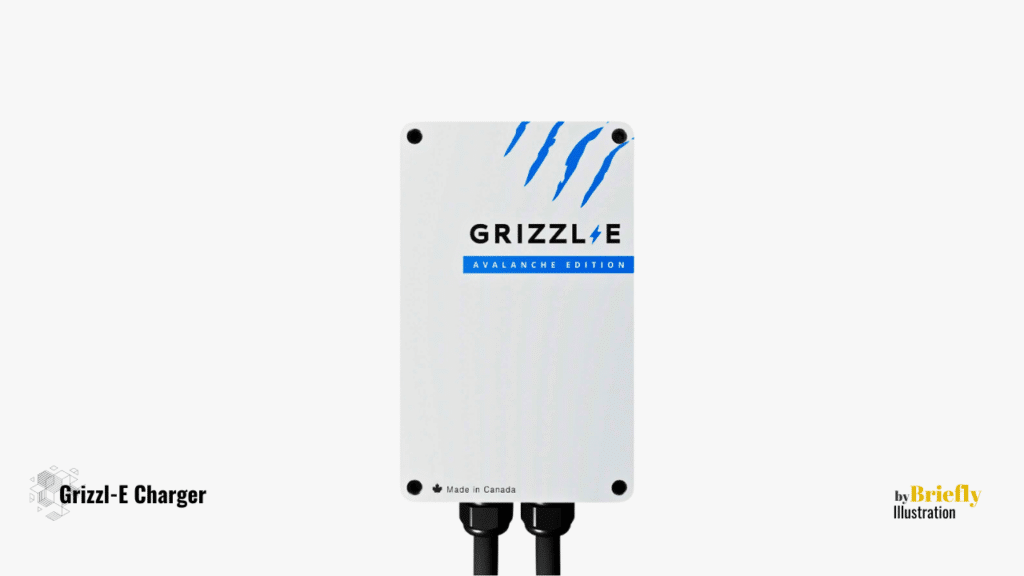
What we like: Tough build-quality and cable length
What we don’t: Not much of a smart features
Grizzl-E level 2 chargers are yet another high-quality and durable option. It is made in Canada and this charger gained much interest in the past few years.
The notable features of this charger are its premium cable quality and the build quality. Great for both indoor and outdoor use. The look is very simplistic and only has one small LED indicator. We also did a close comparison of the Grizzl-E and Lectron EV charger level 2…Read in-depth comparison.
Key Features
- Charging speed: about 30-40 miles per hour (Max 40 amp)
- Cable length: 24 feet
- Charging Amperage Range: Up to 40 amp (adjustable from 16A-40A)
- Connectivity: can be hardwired or come in two plug-in configurations, there aren’t many smart features so if you just like to plug in and charge your car, it’s a good option that way
- Install: installation is easy and there is a manual to follow and recommendation is with certified electrician
- Compatibility: with all EVs in North America. It works with a J1772 adapter, which is required for Tesla vehicles.
- Warranty: It comes with a 3-year or a 5-year manufacturer’s warranty which can be extended, it covers defects in material and workmanship.
5. Electrify America HomeStation ($649)

What we like: Decent build quality and cable length
What we don’t: Bulky design compared to other competitors
The Electrify America HomeStation is a level 2 charger that will charge the vehicle in about 7-9 hours…Read in-depth review.
Key Features
- Charging speed: about 7 times faster than level 1 charger. (Max 40 amp)
- Cable length: 24 feet
- Charging amperage range: adjustable amperage ranging from 16A to 40A
- Safety: ENERGY STAR certified and tested to meet UL standards for safety
- Connectivity: WiFi ready, connected to the Electrify America app for remote access control, remote start/stop charging sessions, notifications/reminders, scheduled charging, and over-the-air updates
- Warranty: 3-year limited warranty on parts
6. Blink HQ 150 ($549)
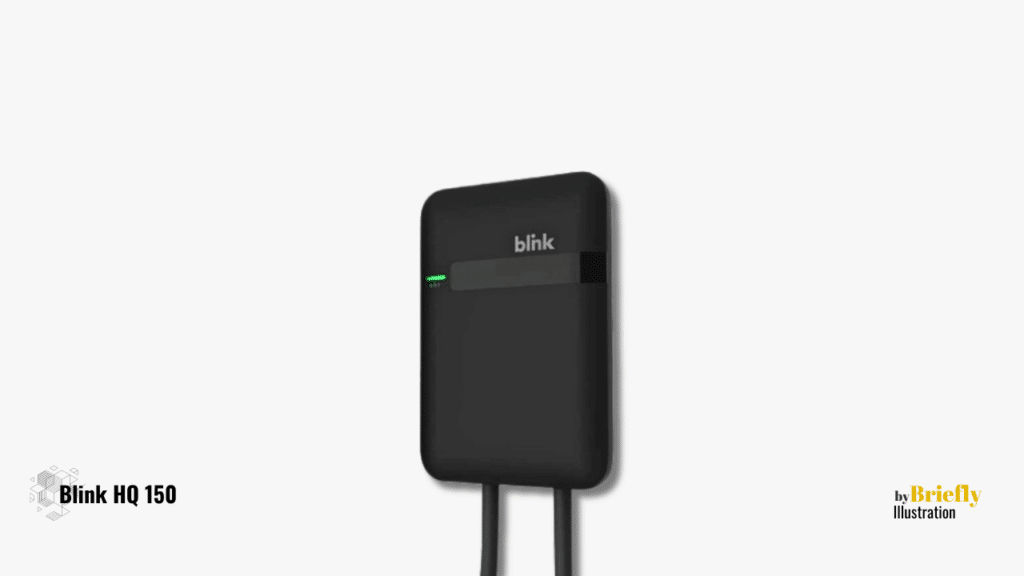
What we like: Long cable, less smart features for those who prefer that
What we don’t: Charging speed is lower compared to others
If you want a low-tech EV charger Blink HQ 150 is a good choice as it is straightforward without needing an app or internet connection or Bluetooth connection. Just install it and plug it into your car.
Generally, Blink HQ 150 gets compliments over its slim design and build quality. People appreciate its look.
Key Features
- Charging speed: 4 times faster charging speed than level 1 charger (32 amps max)
- Cable length: 25 feet
- Compatibility: all EVs that use standard J1772 plug
- Installation: suitable for both indoor and outdoor use
- Warranty: comes with 1 year limited warranty
7. Emporia EV charger ($399)
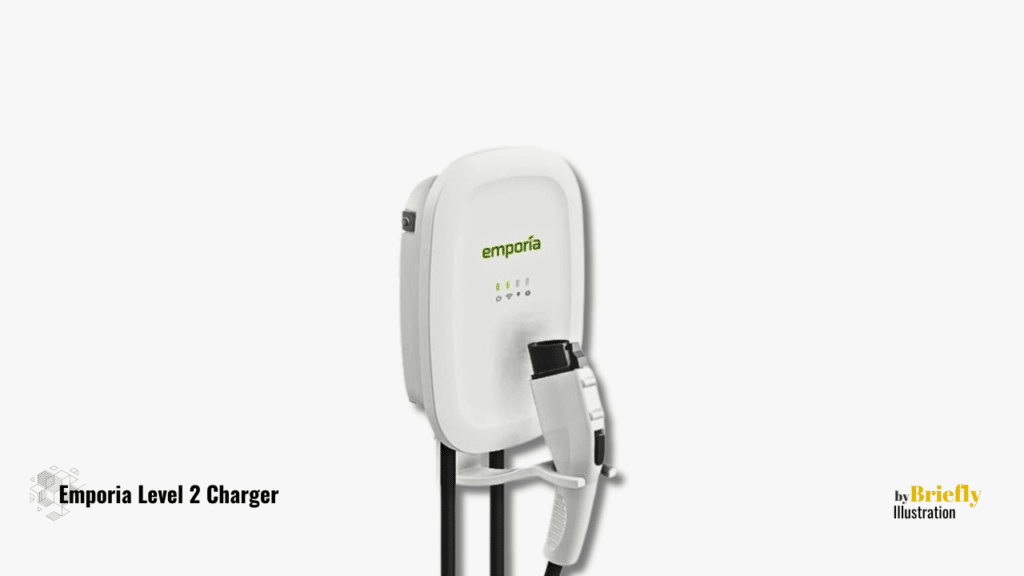
What we like: Energy management
What we don’t: Advance feature learning curve
Emporia EV charger comes in a few different models. The base model has basic functionalities and is good for residential use.
There is another model that is about $100 more expensive with an energy management system. With that, you can control the home energy usage.
The most advanced model is the ProControl model which has access control and fleet management features.
Key Features
- Charging speed: up to 40 amps with a NEMA 14-50 plug or up to 48 amps with hardwiring
- Power: 240V, 48 amp
- Cable length: 24 ft
- Charging amperage range: from 6-48 amps
- Safety: ENERGY STAR-certified
- Installation: It is suitable for both indoor and outdoor
- Connectivity: manage and monitor charging sessions, Wi-Fi enabled, it can automatically only charge with solar power, has intelligent load management
- Warranty: 3-year warranty when installed in North America per the instructions in the installation guide
Comparison Table for Level 2 EV Chargers
| Charger Name | Price Range | Cable Length | Max Charging Speed | Charging Speed Amperage Range |
|---|---|---|---|---|
| Tesla Universal Wall Connector | $450 | 24 ft | Up to 44 miles of range per hour | Up to 48 amps |
| ChargePoint Home Flex | $499 - $749 | 23 ft | 9x faster than standard outlet | 16A - 50A |
| JuiceBox 40 Level 2 | $649 - $950 | 25 ft | 7x faster than Level 1 charger | 40A |
| Grizzle-E Level 2 EV Charger | $349.99 | 24 ft | Faster than Level 1 | 16A - 40A |
| Blink HQ 150 | $499 | 25 ft | 4x faster than Level 1 charger | 32A |
| Electrify America Home Station Level 2 | $649 | 24 ft | 6.8x faster than Level 1 charger | 40A |
| Autel Energy MaxiCharger Home Level 2 | $559 | 25 ft | 7x faster than Level 1 charger | Up to 40A |
| Emporia EV level 2 Charger | $399 | 24 ft | Varies based on amp setting | Up to 48A with hardwiring |
| Amproad iFlow P9 EV Charger | $269.99 | 25 ft | 7x faster than Level 1 charger | 10A - 40A |
| Shumaker SC1455 Level 2 Portable EV Charger | $229.99 | 28 ft | 3x faster than Level 1 charger | 16A |
| Aimiler Level 2 EV Charger | $339 | 25 ft | Faster than Level 1 | Up to 48A |
Buying Considerations: What You Need To Know When Looking For Level 2 Chargers
Smart Connectivity
Smart connectivity refers to the connection between an electric car charger and the wireless network or a mobile app. You can control the EV charger remotely this way.
There are a few benefits of smart connection:
- Makes it easy to check and control the charging session
- Some optimize charging speeds at certain times
- You can save money by scheduling when electricity is cheaper
Smart Features
Smart chargers offer features such as scheduled charging, remote control via apps, and adjustable charging amperage.
These features can provide added convenience and flexibility, as well as electricity savings by charging during off-peak times.
Waterproof
An EV charger needs to be water-resistant. Having a high weatherproof rating for outdoor use is important. It can be a plus factor even if you are planning to install it indoors.
Installation Requirement
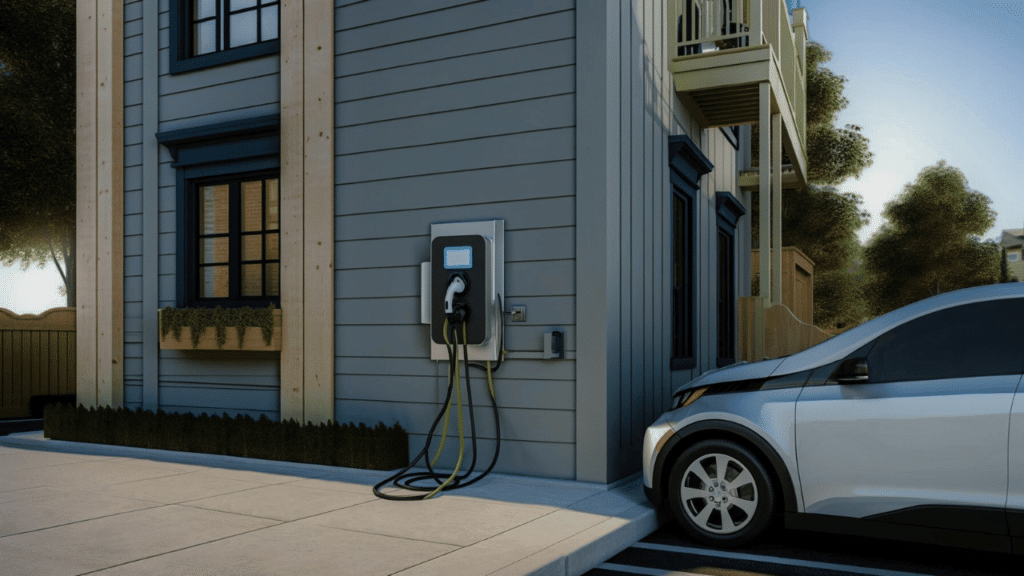
The installation process for a Level 2 EV charger can vary from straightforward to complex and potentially expensive. Some chargers may need to be hardwired into your electrical system. Adding a 240V outlet if one is not accessible can increase the cost. It’s essential to consider installation requirements and professional help.
Charging Speed and Amperage
Level 2 chargers offer different charging speeds, depending on their amperage. Most residential Level 2 chargers operate at up to 30 Amps, delivering 7.2 kW of power, and require a dedicated 40-Amp circuit.
The charging speed can significantly impact the convenience of using the charger, as higher amperage units can power your car faster.
Connector Compatibility
Level 2 chargers use J1772 connectors in the United States. This connector is compatible with all commercially available EVs, except Tesla, which uses a proprietary connector.
Tesla vehicles come with an adapter for the J1772 connector. It’s important to ensure that the charger you choose is compatible with your vehicle’s charging port.
Load sharing
The purpose of load sharing in Level 2 EV chargers is to distribute electrical power efficiently between multiple electric vehicle charging stations connected to a single electrical circuit.
This approach ensures that the total demand for electricity does not exceed the capacity of the electrical infrastructure, thereby preventing overloads and potential outages.
Load sharing is particularly critical in settings where multiple EVs need to be charged simultaneously, such as commercial properties, apartment complexes, or fleet management scenarios.
The charging stations communicate over Wi-Fi or Open Charge Point Protocol (OCPP) networks to share loads. With this communication, chargers can dynamically adjust power distribution based on the current demand and total electrical capacity.

Future Proofing
With the EV market rapidly evolving, it’s wise to consider chargers equipped with forward-looking capabilities such as 4G cellular connectivity for commercial applications.
And bidirectional charging for vehicle-to-home (V2H) or vehicle-to-grid (V2G) applications.
FAQs
Level 2 charging is generally considered better for daily use because it offers a faster charging speed without significantly impacting the battery's health.
Level 1 charging, while safe for the battery, is much slower and may not be practical for daily charging needs, especially for those with longer commutes or those who use their vehicle frequently.
Level 2 chargers can deliver power ranging from 3 to 19.2 kilowatts (kW) in the United States, providing 10 to 75 miles of range per hour of charging.
This makes Level 2 charging up to 19 times faster than Level 1 charging, which typically provides 3-5 miles of range per hour.
Level 1 Chargers: Use a standard 120-volt outlet and are typically included with the purchase of new EVs. They are the slowest, offering about 3-5 miles of range per hour of charging.
Level 2 Chargers: Require a 240-volt input and can be installed at home or found in public spaces. They offer a significantly faster charging speed, providing 10 to 75 miles of range per hour.
Level 3 Chargers (DC Fast Chargers): Not formally called Level 3, these chargers use direct current (DC) and are the fastest charging option available, capable of adding 3 to 20 miles of range per minute. They are typically found in public charging stations due to the infrastructure required.
Yes, there are federal tax credits available for EV owners who install a home charging station. You can claim a credit for some percentage of the cost of your home charger and installation, up to $1,000.
This incentive is designed to encourage the adoption of electric vehicles by making home charging more affordable.
Wiring your house to charge an EV typically involves installing a 240-volt circuit, similar to those used for large appliances like dryers.
The cost of installation can vary widely depending on factors such as the distance from your electrical panel to the charger and local labor rates.
A Level 2 home charger itself can cost between $300 and $800, with additional costs for installation by a qualified electrician. It's important to consult with a professional to get an accurate estimate based on your specific needs and to ensure that the installation meets all local codes and regulations.
Adam
Greetings, fellow enthusiasts of the electric highway! I'm a content producer for the world of electric mobility. A tech geek with a passion for sustainable transportation. I'm passionate about sparking conversations and advocating for a world that's clean, efficient, and exciting.

You May Also Like
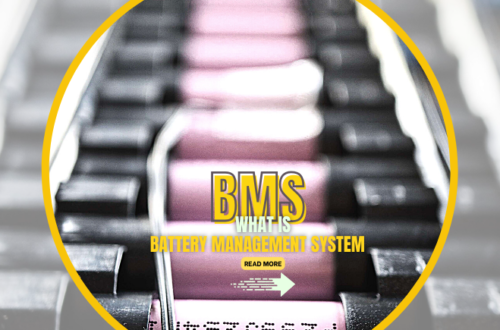
What is Battery Management System (BMS) and Why It’s Important
December 11, 2022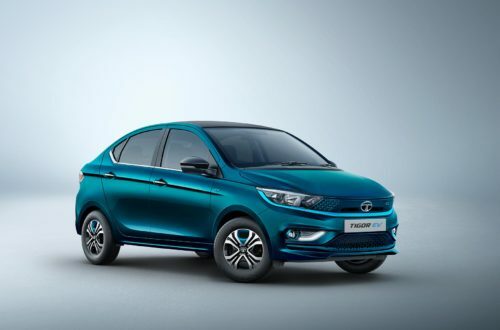
5 Best Indian Electric Cars in the Market
February 15, 2022